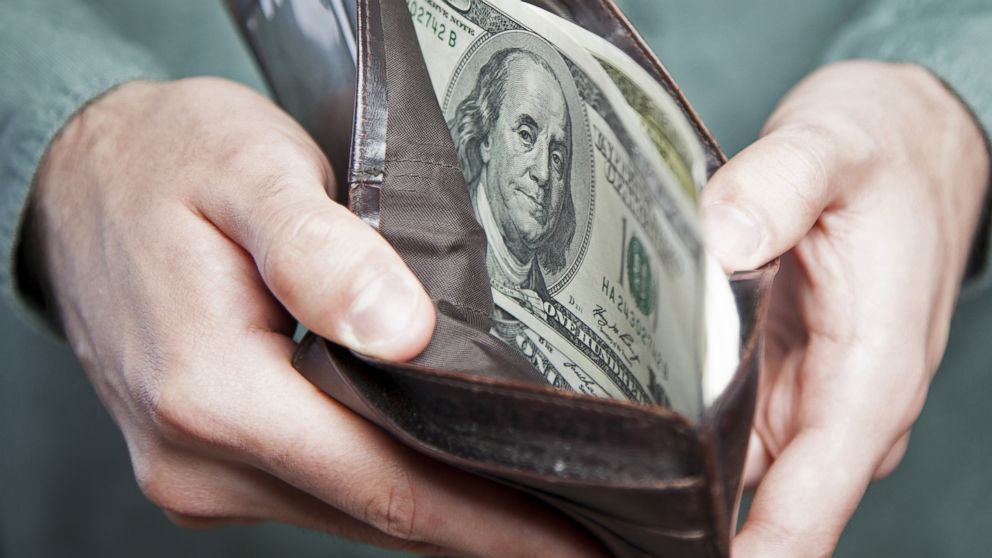Top 7 Ways to Control Impulse Spending
How to stop your impulse shopping once and for all.

Nov. 30, 2013 — -- intro: As we enter the holiday season and approach Cyber Monday, opportunities for impulse shopping abound. Amazon One-Click, online flash deals, buy-one-get-one: with marketers going all-out to get you to spend, it's even harder to take control of your wallet. Thankfully, you can fight the urge to overspend. Here are seven ways to take control of your spending and stop impulse purchases.
quicklist:title: Don't buy with credit text: One way to not spend more than you have is to pay entirely with your debit card – or even better, cash. If you buy on credit, you can spend your way into debt, but limiting yourself to a debit card (and declining overdraft protection so you don't have a negative balance) keeps you from going into the red. You can also consider a no-fee prepaid debit card that's dedicated for spending only. Load it with your monthly shopping budget, and don't use anything else to buy.
quicklist:title: Keep a splurge fundtext: We're all human, and there are times when making an impulse buy is useful. If you've had a really bad day, there's a case to be made for treating yourself to an expensive latte. Knowing that you'll occasionally slip up and make an impulse buy, save up for a "splurge fund" to cover any extra costs you incur. Remember to pay for all your splurges with the splurge fund – in fact, try setting up a no-fee prepaid debit card or separate checking account for just this purchase. I don't care how much your credit card gives on shopping rewards.
quicklist:title: Install a time delay for shopping websitestext: If you find yourself making impulsive online shopping purchases from the same websites over and over, install a time delay script that blacks out the website for five minutes before allowing you to see it. This breaks the instant gratification cycle in your mind and forces you to take a breath. I'm a fan of this one, and often use it to stop compulsively checking Facebook and other websites as well.
quicklist:title: Make shopping hardertext: Try to make it as hard as possible to make your purchases. For example, never save your credit card or shipping information on retailers' websites, and take the most circuitous route to the shopping mall possible. Try to go during peak shopping times so that you'll have to wait in long lines.
quicklist:title: Follow the 30-minute ruletext: If you see something you really like, don't buy it right away. Instead, wait at least half an hour (and preferably longer) before making your purchase. You can put items on hold if you're shopping in-store, or just hold off if you're shopping online. During the cooling-off period, don't go to another store or website and make more purchases. Instead, sit down, read a book, chat with friends – anything to get you out of the shopping mindset.
quicklist:title: Unsubscribe from daily deal newsletterstext: Newsletters are a minefield of danger for impulse shoppers. 40 percent off today only? $200 savings on a weekend getaway, limited quantity available? It's easy to trick yourself into thinking you're saving money, when you're actually only spending further. Avoid temptation by unsubscribing from any deal newsletters you're already on. As an added bonus for Gmail users, to keep from getting on any new lists, try this trick. When retailers ask for your email, instead of putting youremail@gmail.com, put youremail+shopping@gmail.com. That email still goes to your inbox, but you can now set up a filter to automatically archive anything sent to youremail+shopping@gmail.com.
quicklist:title: Return when possible text: Many retailers offer decent return policies, but when they don't, your credit card might step in to help. Discover, for example, will refund eligible purchases up to $500 per item as long as you return within 90 days. There are, of course, exceptions - for example, some cards exclude holiday decorations while others don't cover software - but it's worth checking your card's policies to see if your purchase fits.
This work is the opinion of the columnist and in no way reflects the opinion of ABC News.
Anisha Sekar is the chief consumer advocate at NerdWallet, a website dedicated to helping consumers make and save more money.




